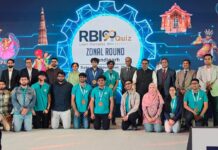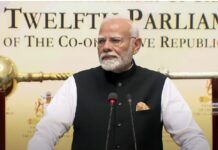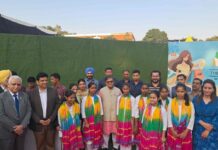Laurels to the Department of Virology, PGIMER
Research scientists of the Regional Virus Research and Diagnostic Laboratory established under Department of Health Research/ICMR, GoI in Department of Virology, PGI has bagged 2 second best awards for their original research work presented in the 30th Annual Convention cum International Conference of Indian Virological Society (Virocon 2022) organized by SKUAST, Srinagar on 5-6th November, 2022.
Ms Meenakshi Rana awarded for the work, “Genetic characterization of human Bocavirus strains isolated from patients with acute lower respiratory tract infections in tertiary care hospital of north India”. Human Bocaviruses have been recently recognized to be a viral pathogen of acute lower respiratory tract infection in children which warrants routine screening of cases for the detection of the virus which might be useful for patient management.
Similarly, Dr Mannat Kang, Scientist-B is bestowed for her work on “Spectrum of adverse maternal, fetal and neonatal outcomes following Dengue infection during pregnancy in a tertiary care hospital of north India: Evidence suggestive of Perinatal transmission”. Dengue is an arboviral diseases being efficiently transmitted by the Aedesaegypti and albopictus, the Asian tiger mosquito and frequent day bitter. The disease prevalence correlates with the abundance of the vector mosquitoes during post monsoon season. Dengue is known for self-limiting illnessoften leads to complications like dengue hemorrhagic fever and dengue shock syndrome. Besides, there can be a possibility of dengue being transmitted to the newborn if the pregnant mother gets infected. The present study highlighted the mother to child transmission of dengue resulting maternal death, foetal death & foetal intrauterine growth retardation. Thus, during the dengue transmission season, pregnant mother with fever, myalgia and joint pain needs to be screened for dengue either by Dengue NS1 Antigen ELISA if patient presents within 5 days of fever or dengue IgM ELISA if presented later.
















